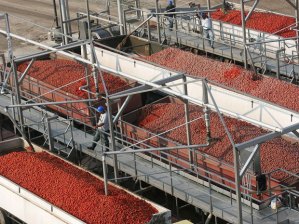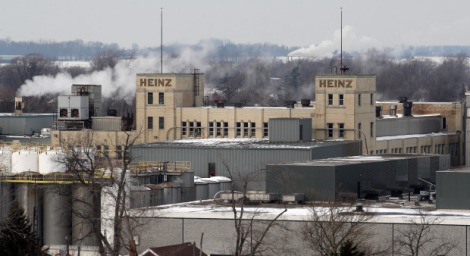by Julius Arscott

Heinz has contracts with more than 40 area farms to buy 40 per cent of Ontario’s 500,000-tonne tomato crop. Now farmers are asking for compensation from Heinz for the cancellation of their contracts and for work they have already put into next year’s crops. The farmers who were under contract to supply Heinz with tomatoes are left trying to find a new crop to plant in the spring, and some way to replace the business that has kept their farms busy and profitable for generations. The closure will have a major negative impact on an entire region.
A leader of the UFCW stated “Today’s announcement is another example of a transnational private equity firm swooping in to a Canadian community and sucking up the hard-earned value of an operation that was built by generations of hard-working Canadian and their families”. Paul Meinema, President of the UFCW Canada National Council, said “This latest closure is another strong example of why our federal government desperately needs to review and reform existing foreign investment legislation, and to introduce a new approach that finally puts Canadians and the well-being of their communities first.”

Efforts to protect jobs and benefits for workers need to take a class approach. Canadian nationalism benefits only the bosses. It deflects attention away from the real problem, capitalism. The maximization of private profits, a driving force of the global capitalist system, is the culprit in this drama.
The corporate attack on the workers and farmers in Leamington will devastate the region’s economy, a region already reeling from closures in the manufacturing sector in nearby Windsor, Ontario (just across the river from Detroit, Michigan). Workers and farmers create value through their labour in the food industry. Only through public ownership and democratic control can they continue this vital work and sustainably provide a variety of locally grown and locally processed foods to a vast region.












































































































